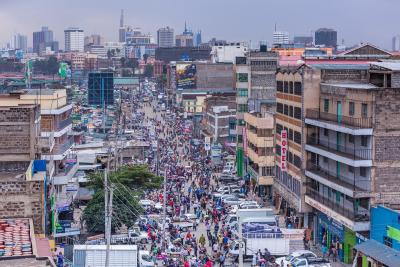Multisector Scenarios of the Future of Human Well-Being
Scenarios are visions of how the world might unfold. Typically, scenarios describe trends in drivers of change—factors like population and economic growth, how fast technological progress occurs, and changes to the climate system. Researchers use the scenarios as inputs to project the consequences of the drivers, for example, for agricultural production, water availability, or the impacts on decarbonization scenarios. We propose that new scenarios are needed that include outcomes (consequences) not just for physical or managed systems, but also for human well‐being and resilience, including health, poverty, and household food, water, and energy security.
Research derived from this outcome‐based scenario development approach would facilitate improved analysis of risks of and responses to a range of stressors and the multi‐sector interactions they generate. It would also point to new avenues of research to better understand and model a wider variety of well-being outcomes than the field currently addresses.
Scenarios developed for wide use in the climate and global change research community have played a prominent role for decades. However, most current frameworks focus on providing a common set of qualitative and quantitative inputs to models and other analyses. Most studies using these frameworks do not project future outcomes for human well‐being, but rather stop short at outcomes for biophysical systems (e.g., effects on the climate system, land cover, or water supply), managed systems (effects on energy, agriculture, and water systems), and economic systems (effects on GDP, prices, or output levels). We propose the need for an outcome‐based scenario development process that would be organized around outcomes for well‐being, allow for the analysis of multiple issues at multiple scales, and employ new systematic techniques for developing and exploring scenarios and characterizing their uncertainty. The new scenario framework would be designed to explore key well‐being outcomes, such as water, food, and energy security from subnational to global scales. Furthermore, the proposed framework would leverage large scenario ensembles and emergent data‐driven scenario generation methods, like scenario discovery, to allow a thorough exploration of uncertainty, investigation of tradeoffs between metrics of wellbeing, and selection of scenarios most relevant for specific applications.

